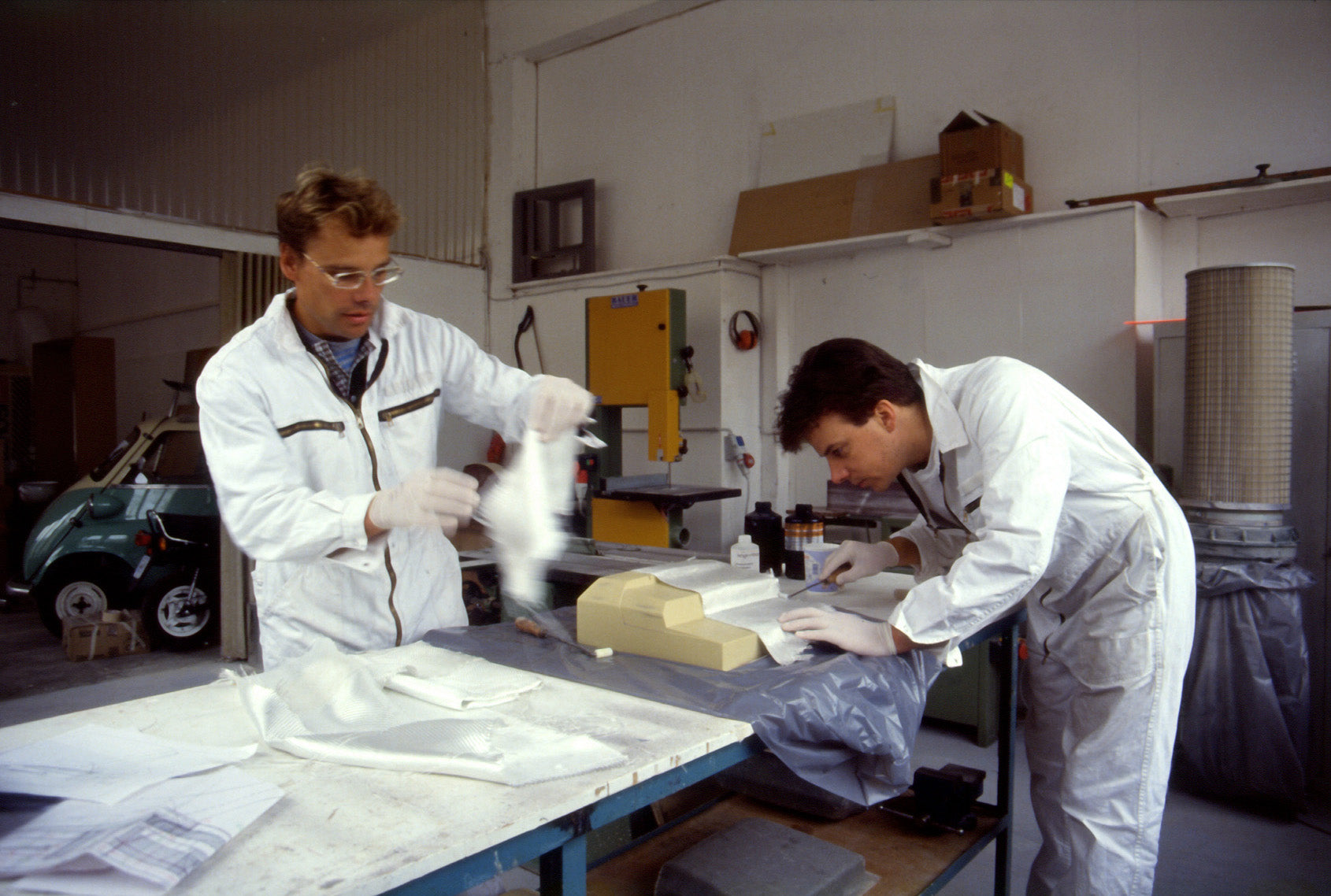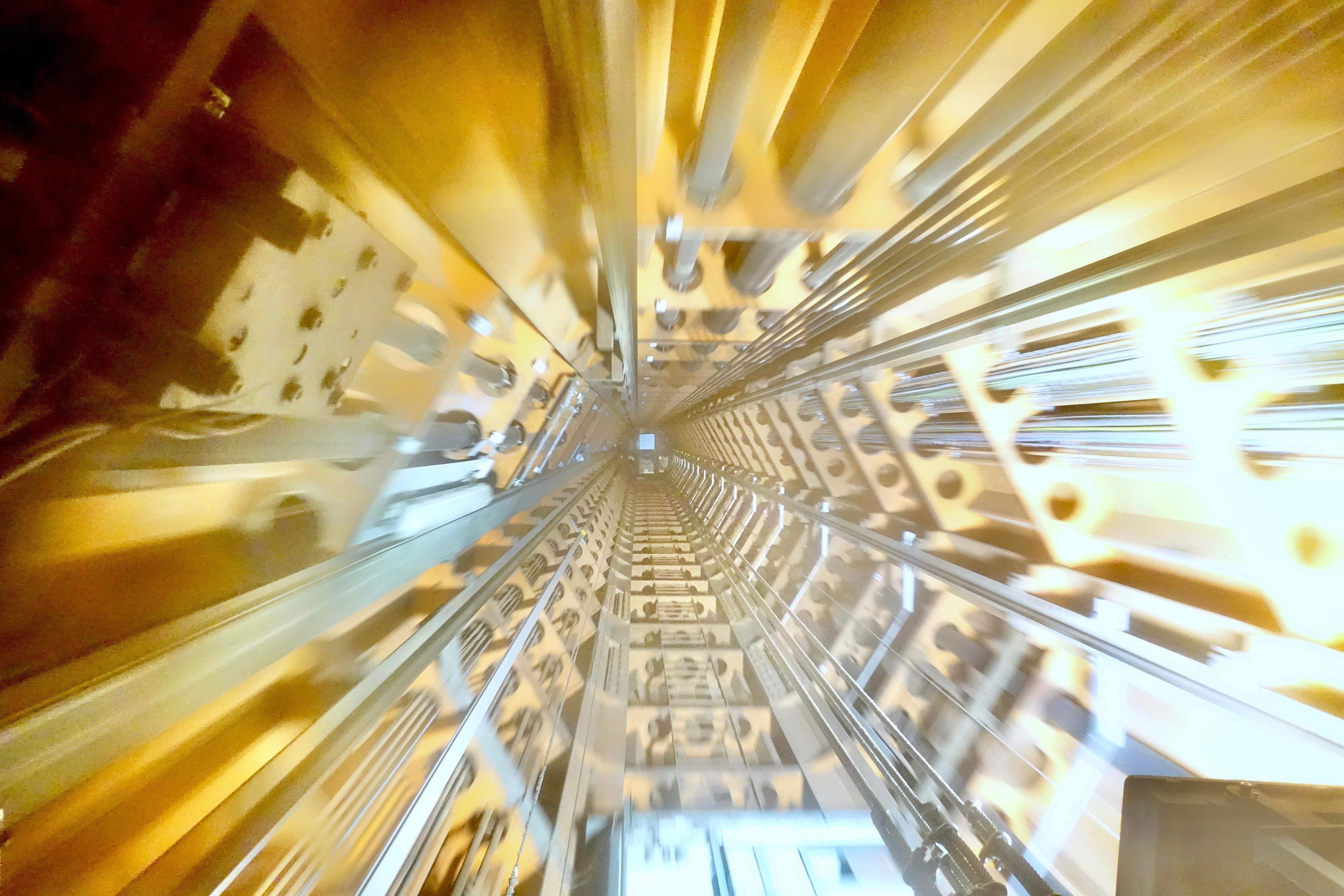Information is the building bocks of our future. However, too much simultaneous information can be just as harmful as too many simultaneous goals. In both cases, focus helps. Here is an example from my own experience.
Eight weeks for a demanding thesis that was scheduled to take 6 months to complete. That was the challenge of my diploma thesis in 1989.
The task: the conceptual and creative development of a digital hi-fi system including a partially functional model on a 1:1 scale.
The severe lack of time was due to a "real customer order" that was due at the same time, which meant that I was unable to devote much time to my thesis in the first four months.

Everything was completed the very last minute, literally. The resulting model study was exhibited at the International Consumer Electronics Fair in Berlin the following year.
The positive completion of this complex task under maximum time pressure was only possible thanks to maximum personal commitment, countless night shifts and an absolute focus on this important goal.

Today, I often find it much harder to focus on a meaningful goal. There are many external factors responsible for this, but there are also some personal ones.
This prompted me to take an analytical look at the mechanisms of this powerful tool: Focus.
What does Focus" mean?
In a figurative sense, it means clearly defining a goal and placing its achievement at the center of thought and action.
Mental focus is also helpful for bringing order, structure and direction to a process. This can also apply to your own life.

Focus and concentration are not the same.
The two terms are often used interchangeably. They are indeed related, but have a slightly different focus.
I see two main differences:
1. focus can only ever be on a single goal. Concentration, on the other hand, can cover several topics. An example from aviation: During the landing approach, the pilot should focus on the safe landing process. Other goals should be ignored or at least put aside during this critical phase of the flight. His concentration, on the other hand, must be divided between various observations and actions (outward view, various instruments and controls) in order to implement the main objective of "landing the aircraft safely" in a technically correct manner.
2. focusing on a large and significant main objective usually refers to a more comprehensive and longer-term project. Large and comprehensive goals usually have to be broken down into smaller milestones. Between these sub-steps, there are usually other activities that are not necessarily geared towards achieving the main goal. However, the main goal should never be completely lost sight of and should have a consistently high priority. It should remain of high importance until the positive conclusion of the project. In contrast, concentration is a time-limited process that is designed to achieve steps or sub-goals.
Focusing is aimed at setting personal goals, whereas concentration is more about leaving out the irrelevant.
Concentration is therefore an important tool for achieving a focused goal.

Why is focus of even higher importance in todays time?
This is probably due to the fact that our everyday lives have become considerably more complex and multi-layered in recent decades. The information available, not to say the need for attention through social media, is becoming ever more present and pervasive.
The flood of professional communication through emails, video conferences and social networks is also increasing significantly. We are constantly forced to redefine priorities and interrupt ongoing activities in favor of more urgent ones. Often without a chance to get everything done. This makes overworking and frustration almost inevitable.
Focusing can be a lifeline in the face of information overload.
So much for the simple theory. How can it be implemented in our complex reality?

Focusing begins with a clear goal of high value.
Focusing is of course only worthwhile if the effort required to achieve the goal is in reasonable proportion to the goal being pursued.
The SMART rule helps to define tangible goals:
Goals should be Specific, Measurable, Attractive, Realistic and Time-bound.
Once such a goal has been defined, a plan for implementation can be developed.
However, focus does not mean pushing through the plan under all circumstances once it has been developed. Changes to the plan or a change of approach or tools always make sense if the previous measures do not work or no longer seem sensible. Or, of course, if an secondary goal has changed.
In terms of a focused approach, it is crucial to keep the main goal in mind.
Focus means to prioritize a single main goal over others.
Sounds simple, but in practice, it's often difficult to maintain. Especially the second part, filtering out less important things, is often challenging. Because frequently, we get distracted by attractive trivialities that hinder us from focusing on the currently less attractive (yet more important in the long run) main thing. This is where additional focusing factors such as proper prioritization, concentration, and discipline come into play.
For important tasks, it's advisable to eliminate or at least minimize all sources of disturbance. Here, I particularly mean visual and auditory distractions.
Reduced stimulus is a good prerequisite for concentrated and focused work.
However, one shouldn't overdo it here either. Prolonged focus on a topic leads to fatigue and ultimately to a loss of concentration and motivation.
According to relevant studies, the maximum continuous attention span is between four to six hours. Adequate breaks at the right intervals are important to sustain concentration over an extended period.
In this context, here's some good news: The duration of concentration ability does not decrease with age as one might expect; it actually increases.

Concentration as a tool for focusing.
Here, concentration emerges as a crucial tool for focus. Similarly important to long-term focus on a big goal is the short-term concentration on individual steps.
For instance, to master a musical instrument very well, one must repeatedly and regularly engage in specific practice sessions with high concentration over an extended period.
It is estimated that around 10,000 hours of practice are necessary to become a master in a particular activity (assuming talent). This example emphasizes once again that the main goal (here, the perfect mastery of an instrument or a sport) is only achievable through a meaningful division into many smaller steps. The length of these steps should be guided by the span of one's current personal concentration ability or performance capacity.
Focus takes Disciplin.
The previously mentioned success factor comes into play, namely discipline. Even though it has somewhat lost its prestige in public appreciation over the past decades, discipline remains an indispensable tool for focus.
Discipline is also necessary to filter out as many short-term distractions as possible, such as small, quick successes (so-called quick wins), in order to stay focused.
In this regard, turning off electronic distractions (social media, smartphones, phone calls...) as well as setting boundaries with human distractions can be helpful. A friendly but firm "no" at the right time is often advisable for the sake of focus.

Focus requires structure an order.
Last but not least, maintaining order in the workplace facilitates achieving goals or sub-goals without interruption. In this regard, I can recommend the book "Simplify your Life" by Werner Tiki Küstenmacher as an entertaining guide and motivator. Alternatively, for a less detailed but more concise resource, consider my blog article "
Multitasking is the opposite of Focusing.
Multitasking is still being celebrated as a special skill nowadays. In reality, it's merely a euphemism for "being scattered," and thus the exact opposite of focus. Since our consciousness can naturally only focus on one thing at a time, multitasking is nothing more than constantly shifting attention back and forth.
This is not only exhausting and draining but also increases stress levels, error rates, and fosters dissatisfaction.
Certain life circumstances and work situations may make simultaneous handling of different tasks necessary, but they should remain exceptions.
Nervousness, exhaustion, and burnout can be the result of this persistent scattering of attention.
Advantages of Focusing.
Focus has much to do with discipline and sometimes also with sacrifice. However, it brings a whole host of positive effects for us, which are definitely worth the effort: Clearer goals, more success, better structure and organization, more peace, and last but not least, better health and more respect in our personal environment. Focused individuals appear calmer, more thoughtful, and thus more composed.

Focus through simplifying time display.
Exactly these thoughts were the starting point for me in 1986 for the development of the first single-hand watch of modern times, the UNO wristwatch.
This focus on the essentials - "the intuitively graphic and simple representation of the time" - was my goal back then. While a multi-handed watch is literally "ambiguous," a single-handed watch is inherently "unambiguous." It embodies, so to speak, the focused representation of time.
It stands to reason that a clearly focused watch indeed facilitates the "sovereign handling of personal time." Every glance at the display is a small reminder to focus on what's important.

Even more analog and unequivocal in time representation are our 24-hour single-handed watches.
They depict the day in the form of an analog graphic, where the hand position corresponds to the current position of the sun. This is not only a particularly natural form of time representation but also a particularly vivid and comprehensive one.
This graphical representation of time suggests a different, more conscious approach to time with every glance at the watch. Here, the current moment is the focus.
Our Single hand watches are the opposite to Smartwatches.
Smartwatches are true multitaskers. They not only display the time but also show incoming emails, calls, text messages, upcoming appointments, body states, steps taken, steps remaining, and much more.
Our single-handed watches only convey the time - and sometimes not even all that accurately, depending on the model. (By Design)
But it's precisely this omission of constant "multi-information" and the associated disruptions that make such a watch a pleasant companion radiating traquility.
No sound, no vibrations, no display ever disturbs concentration. Reliably!
I decide when I need time information and receive it pleasantly and intuitively. Clearly and simply represented.
Many of our customers describe it as an "effective tool for conscious and thus sovereign time management."
From my own experience, I can confirm this: A glance at my single-handed watch gives me exactly this calmness, clarity, and focus.
For me, it's a symbol of serenity that works both outward (on the environment) and on myself.
Ultimately, our single-handed watches are subtle but effective reminders of conscious time management. Or, to put it another way: tools for personal focus.
I wish you a relaxed approach to time,
Yours dearly - Klaus Botta












2 comments
Lieber Klaus, wie immer ein erfrischender Artikel, der zum Nachdenken anregt. Vielen Dank. In meinem Pilotenleben habe ich gelernt, dass neben Fokussierung und Konzentration vor allem auch Routinen den entscheidenden Sicherheitsvorteil bringen. Anhand von Checklisten werden in jeder Flugsituation (Vorflug, Start, Steigflug, Reiseflug, Sinkflug und Landung) die erforderlichen Soll-Werte laut vorgelesen und laut beantwortet. Routinen bringen Sicherheitsgewinn in komplexen Situationen. Sie erleichtern Konzentration und Fokussierung auf alle jeweils wesentlichen Parameter. Sie helfen dabei, sich nicht auf das Falsche zu fokussieren und dabei Wesentliches zu übersehen. Deswegen “spricht” man Checklisten auch bei Alleinflügen laut. Das ist nicht nur sinnvoll sondern auch enorm beruhigend. Routine hilft auch in “irdischen” Situationen.
Liebe Grüße, Alex
“Wer alles kann, der kann nichts richtig”
Der eigene Fokus ist Weg und Ziel in einem.
Auch wenns heute viel nicht gerne hören: Ohne diesen Fokus, Struktur und Fleiß wird der kurzfristige Erfolg zum Zufall.
Und Zufälle sind im Geschäftlich kein Erfolgsgarant.
Toller Artikel, danke!
Gruß aus Bous von Herrn Strohm